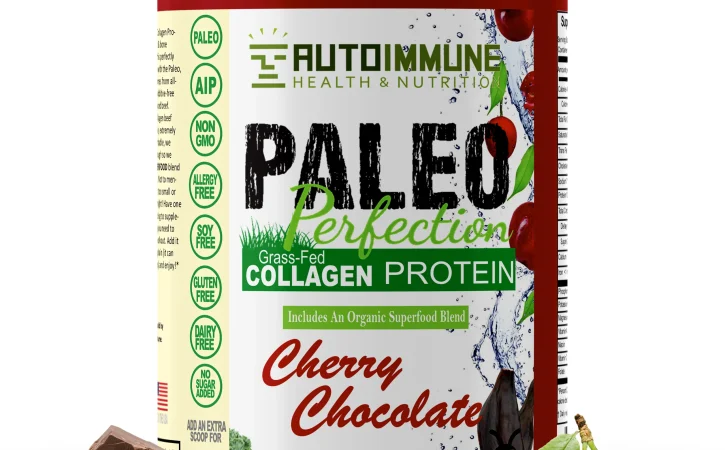
Is Paleo Protein Powder suitable for people with lactose intolerance?
When it comes to choosing the right protein supplement, individuals with lactose intolerance often struggle to find options that support their fitness goals without triggering digestive discomfort. Traditional protein powders, especially those made from whey or casein, are derived from milk and may cause bloating, gas, or stomach pain in lactose-sensitive people. However, Paleo Protein Powder has emerged as a popular alternative for those seeking a Natural Protein Powder that is both dairy-free and gut-friendly. But the question remains — is Paleo Protein Powder truly suitable for people with lactose intolerance? Let’s explore this in detail.
Understanding Lactose Intolerance
Lactose intolerance is a common digestive condition where the body lacks sufficient levels of lactase, the enzyme responsible for breaking down lactose — the sugar found in milk and dairy products. When undigested lactose passes into the colon, it can cause symptoms like bloating, cramps, gas, and diarrhea. For people with this condition, avoiding dairy-based protein supplements such as whey concentrate is crucial.
What Is Paleo Protein Powder?
Paleo Protein Powder is formulated based on the principles of the Paleolithic diet — a nutrition plan inspired by the eating habits of early humans. This diet eliminates processed foods, grains, legumes, and dairy, focusing instead on clean, whole-food ingredients. As a result, Paleo Protein Powders are naturally dairy-free, gluten-free, and soy-free, making them an excellent choice for those with food sensitivities.
Unlike whey protein, which comes from milk, Paleo Protein Powder is typically made from alternative protein sources such as:
- Egg whites – A complete protein source rich in essential amino acids.
- Beef protein isolate – Derived from lean beef, it’s lactose-free and high in collagen and amino acids.
- Collagen peptides – Great for joint health, skin elasticity, and muscle repair.
- Plant-based proteins (in some blends) – Such as pea, hemp, or pumpkin seed protein, suitable for vegans.
Because these ingredients contain no dairy, they are inherently lactose-free, making them safe and suitable for individuals with lactose intolerance.
Why Paleo Protein Powder Works for Lactose-Intolerant People
- Completely Dairy-Free Formula
The biggest advantage of Paleo Protein Powder is that it excludes all dairy ingredients. Traditional whey or casein proteins can still contain trace amounts of lactose even when processed as isolates. Paleo Protein, on the other hand, uses animal or plant-based sources that are entirely lactose-free, making it a safer and more comfortable option. - Easy to Digest
People with lactose intolerance often have sensitive digestive systems. Paleo Protein Powders are designed to be gentle on the gut since they avoid not only lactose but also common allergens like soy and gluten. Many versions even include digestive enzymes or collagen peptides, which further support digestion and nutrient absorption. - Rich in Essential Amino Acids
Despite being dairy-free, Paleo Protein Powder still provides all the essential amino acids required for muscle recovery, tissue repair, and energy production. For example, egg white and beef protein sources are both considered “complete” proteins — meaning they contain all nine essential amino acids in the right proportions. - No Artificial Additives or Fillers
Another benefit is the commitment to purity. Since Paleo products follow the ancestral nutrition philosophy, they typically exclude artificial sweeteners, chemicals, and preservatives. This makes Paleo Protein a Natural Protein Powder option that aligns with clean eating and supports overall wellness.
Comparing Paleo Protein Powder to Other Protein Sources
Let’s look at how Paleo Protein compares to other common protein powders:
- Whey Protein: High in protein but derived from milk. Even “lactose-free” versions may cause discomfort for sensitive individuals.
- Soy Protein: Dairy-free but often avoided by Paleo dieters due to its potential hormonal effects and GMO concerns.
- Plant-Based Proteins: Good for vegans, but some blends lack certain amino acids or may include grains and legumes that are not Paleo-approved.
- Beef or Egg Protein (Paleo Protein): Naturally lactose-free, nutrient-rich, and great for maintaining lean muscle without digestive side effects.
Clearly, Paleo Protein Powder offers a balanced, natural, and allergen-free alternative for those seeking a lactose-free protein source.
How to Choose the Best Paleo Protein Powder
Not all Paleo Protein Powders are created equal. When shopping, keep these factors in mind:
- Check the ingredients list: Ensure there are no dairy derivatives or added sugars.
- Look for grass-fed sources: If you’re buying beef protein powder, grass-fed options are purer and higher in nutrients.
- Opt for minimal processing: Choose powders with clean, recognizable ingredients and no artificial additives.
- Confirm digestibility: If you have multiple sensitivities, choose a simple formula with digestive enzymes or hydrolyzed protein for better absorption.
Additional Benefits of Using Paleo Protein Powder
Besides being ideal for lactose-intolerant individuals, Paleo Protein Powder offers several other health benefits:
- Supports lean muscle growth: Provides high-quality amino acids that aid in post-workout recovery.
- Improves skin, hair, and joints: Especially when it includes collagen peptides.
- Boosts satiety and energy: Keeps you fuller for longer, making it great for weight management.
- Promotes clean nutrition: As a Natural Protein Powder, it supports a wholesome lifestyle free from artificial ingredients.
How to Use Paleo Protein Powder
Paleo Protein is versatile and can be easily incorporated into your daily diet. You can mix it with water, almond milk, or coconut milk for a quick shake. It can also be blended into smoothies with fruits, nut butter, or greens for a nutrient-rich meal. Some people even use it for baking — adding a scoop to pancakes, muffins, or protein bars for a healthy boost.
Conclusion
So, is Paleo Protein Powder suitable for people with lactose intolerance? Absolutely! Because it’s dairy-free, clean, and easy to digest, it offers an excellent solution for individuals who want the benefits of protein supplementation without the discomfort of lactose. With its natural ingredients, high amino acid content, and versatility, Paleo Protein Powder stands out as one of the best Natural Protein Powder options for anyone pursuing a healthy, allergy-friendly, and performance-focused lifestyle.










